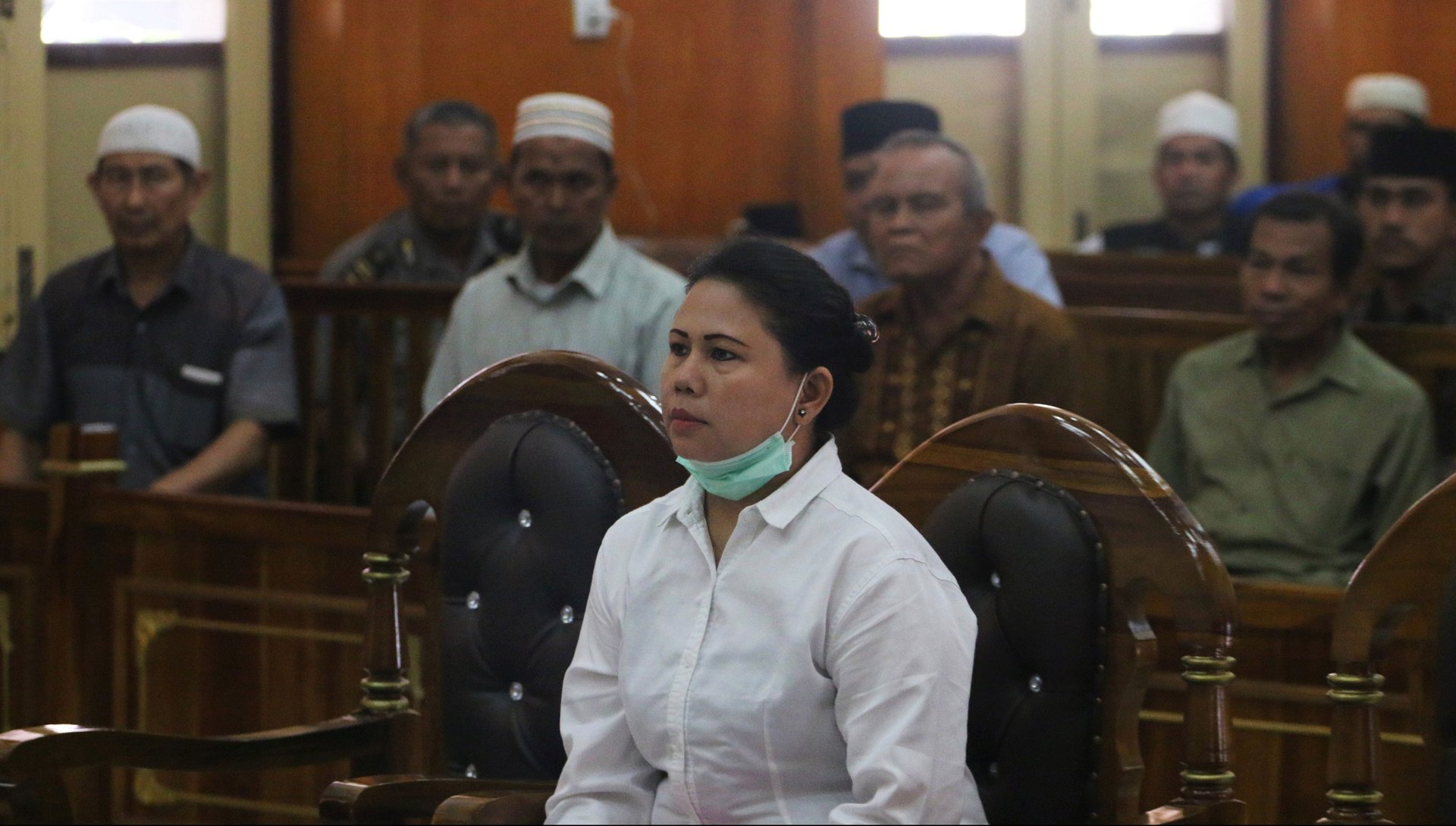Indonesia’s latest blasphemy verdict is too much even for its largest Islamic organizations
An Indonesian woman was sentenced to 18 months in prison this week. Her crime? Saying that a mosque near her home was cranking up the volume too high during the call to prayer.


An Indonesian woman was sentenced to 18 months in prison this week. Her crime? Saying that a mosque near her home was cranking up the volume too high during the call to prayer.
As of today (Aug. 24), more than 100,000 people have signed an online petition in protest. Amnesty International condemned the ruling, saying, “Making a complaint about noise is not a criminal offense. This ludicrous decision is a flagrant violation of freedom of expression.”
The nation’s two largest Islamic organizations—Nahdlatul Ulama (NU) and Muhammadiyah—have also spoken against the ruling. NU said complaints about a mosque’s loudspeakers should not be considered blasphemy. “I hope officers of the law do not use the blasphemy law as an instrument to suppress freedom of expression,” Robikin Emhas, who sits on NU’s board, said after the ruling.
Muhammadiyah secretary Abdul Mu’ti said the sentence was “too heavy” and called for an in-depth review of blasphemy-related articles and laws, arguing provisions were vague and open to interpretation. Under the nation’s criminal code (pdf, p. 27), anyone who “deliberately” abuses a religion in public may be sentenced to up to five years. Critics contend the laws are used to bully minorities.
Though Indonesia has the world’s largest Muslim population, officially it is pluralist and recognizes six major religions, including Buddhism. Recent years have seen seen a rise in conservative interpretations of Islam.
The woman sentenced, Meiliana, is an ethnic Chinese Buddhist who lives on the island of Sumatra. Her comments, made in a private conversation in 2016, sparked riots in which Muslims attacked Buddhist temples. Her legal team contended those comments were twisted to make it seem she objected to the call to prayer itself, and then repeated on social media.
A year earlier, Indonesian vice president Jusuf Kalla—a member of the Indonesian Mosque Council—said that places of worship should turn down their sounds systems to avoid agitating people living nearby.
Unlike Meiliana, he was not prosecuted for saying so.